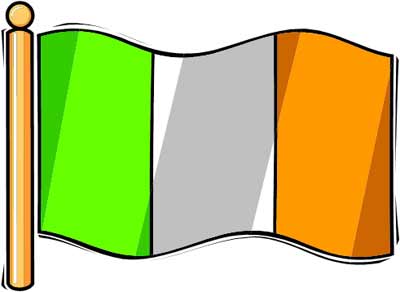The slave trade
The Atlantic slave trade was the enslavement and transportation of Africans, to the colonies of the New World. It lasted from the 16th century to the 19th centuries.
Second World War
The second world war was a global military conflict. The start of the war is held to be 1. September 1939, when two opposing military alliances were formed: The Allies and the Axis. The war started with the invasion of Poland.
Second World War is the most widespread war in the history, and is also known as the most tragic period in Jewish history, as Adolf Hitler decided to completely exterminate the European Jews. Together, more than 73 000 000 died during the war.
9/11
The 9/ 11 terror attacks were a series of coordinated suicide attacks by al – Qaeda upon the United States on September 9. 2001, and is the biggest terror attack in the history. 19 hijackers took control of four commercial airliners. American Airlines flight 11 and United Airlines Flight 175 was crashed into the world trade center. Nearly 3000 victims died in the attack. None of the 19 hijackers survived.
Nelson Mandela
Nelson Mandela was the first president to be elected in a fully representative democratic election in South Africa. Mandela was an anti – apartheid activist, and the leader of Umkhonto we Sizwe, the armed wing of the African National Congress (ANC). Mandela has received more than 250 awards, Including the Nobel Peace Prize.
Murder on J.F Kennedy
The assassination of John. F. Kennedy, the thirty fifth president of the United States, took place 22. November 1963 in Dallas, Texas. Kennedy was the first catholic president, and founded the African American civil right movement.
The tsunami in Thailand
The Thai government reported 4812 confirmed deaths, 8457 injuries and 4499 missing after the country was hit by a tsunami caused by the Indian Ocean earthquake on 26. December 2004. The waves were up to 100 feet high, and were one of the most deadly natural disasters in the world history. The economic impact of the tsunami on Thailand was considerable, though not as great as in poorer countries such as Indonesia and Sri Lanka.
Global warming
Global warming is the increase in the average temperature of Earth’s near – surface air and oceans since mid 20th century and its projected continuation. According to many scientists, global warming is affecting many parts of the world. The sea rises and water covers many low land islands. This affects many plants and animals.
Henry the 8th
Henry the 8th was king of England in the period 1509 – 1547. He was also lord of Ireland and claimant to the kingdom of France. Henry was the second monarch of Tudor. Besides his six marriages, Henry the 8th is known for his separation of the Church of England from the Roman Catholic Church.
Gandhi
Mahatma Gandhi was the political leader of India during Indian independence movement. His policy was non violent, and it was this concept that helped India to gain independence. Gandhi inspired movements for civil rights and freedom across the world.
Sitting Bull
Was a Sioux holy man who led his people as a war chief during years of resistance to the United States government policies. He is notable in American and Native American history for his role in the major victory at the battle of the Little Big Horn against George Armstrong Custer and US 7th Cavalry Regiment in 1876.
Important change
Even though a lot of the happenings in the world might not be good or great, they are still necessary for the human development. Through both good and terrible events, we learn more about the world, and each other. I think that we by experience tragedies get stronger and more developed, and we learn to adjust to the world. With no happenings in the world, we don’t get to allocate knowledge, and we end up living in our own little world, were the world has to adjust to us instead. Then how would we handle it when suddenly out of now were a disaster happen? We wouldn’t be able to do anything, because we wouldn’t be used to handle crisis.
Luckily, our modern world has learned to adjust many kinds of crisis and disasters. Even though we don’t welcome the hurricanes or the tsunamis, most don’t come to us as a shock. Many times we can predict one coming, and thanks to this many lives can be saved.
War and terror attacks can be avoid to a certain point, thanks to military forces.
Off course, we cannot always handle every crisis just as good, but it’s important to remember that we learn as long as we live. And if it had not been for different kinds of events, both extraordinary and terrible, the world would have stopped. We wouldn’t be able to develop, and we wouldn’t gain new insight.

